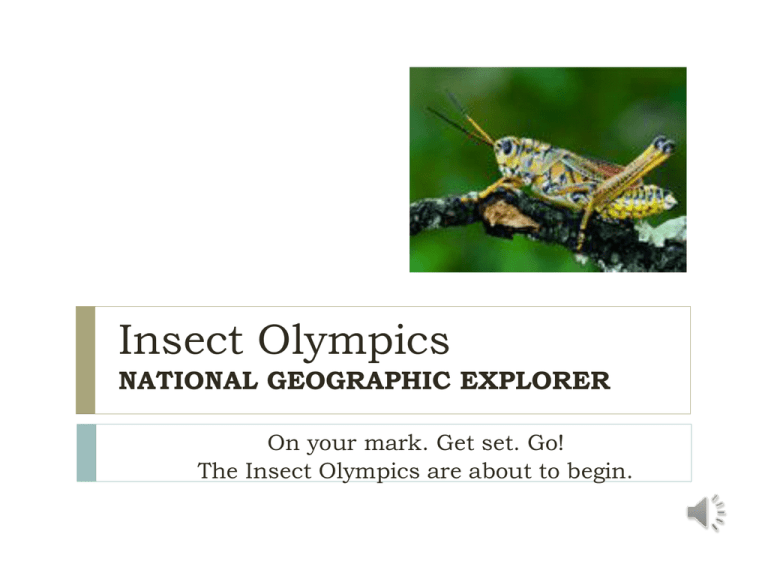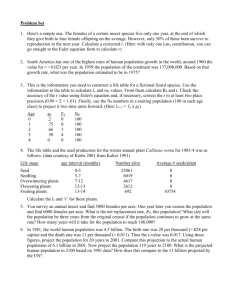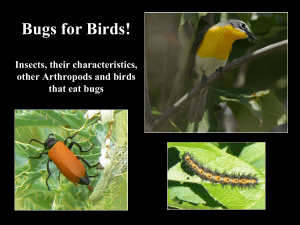
Insect Olympics
NATIONAL GEOGRAPHIC EXPLORER
On your mark. Get set. Go!
The Insect Olympics are about to begin.
Higher, Faster, Stronger!
That's the motto of this summer's Olympic
Games. It's also a goal for the more than 1
million insect species known to be living today. If
an insect meets its goal, it survives. To do this, an
insect needs to beat its competition.
Insects are incredible, but can they beat other members of
the animal kingdom? To find out, we've put together the
Insect Olympics. We've matched insects with some other
amazing animals. We'll test each for speed, strength, or even
their ability to spit. Let the games begin!
Fastest
Everyone knows cheetahs are fast. These cats
can go from zero to 112 kilometers (70 miles)
per hour in seconds.You might think that
nothing can outrun these fast felines.You should
think again.
Imagine that we shrank a cheetah down to the
size of a tiger beetle. Both animals are now at
the starting line. They're off!
The tiger beetle moves 170 times its body
length in just a single second. The cheetah covers
about 20 body lengths per second. The tiger
beetle races past the finish line long before the
cheetah.
In the wild, the tiger beetle moves so fast, its
large eyes can't keep up with it. When chasing its
dinner, it briefly loses its sight. It has to stop to
see. Now that's blinding speed.
Stop and Summarize
Zippiest
Our next two competitors are ready. The
peregrine falcon is stretching its wings. This
falcon is known throughout the skies for its
speed. While diving through the air, it can reach
over 390 kilometers (242 miles) per hour. Since
this falcon is one of the fastest fliers, this may
not be much of a contest.
Here comes the underdog. It's the green darner.
This dragonfly is one of the fastest flying insects.
There's even one kind of darner that can jet
around at almost 90 kilometers (55 miles) per
hour.
There they go! Bird and insect are off to a fast
start. Wait. What's that? The dragonfly has
stopped. It's hovering. Now it's diving. Oh, this is
too much. Now it's flying backward!
Stop and Predict
Those are awesome antics, but the dragonfly
can't out-fly the falcon. The bird's normal speed
is close to the dragonfly's best effort. In a race
between dragonflies and falcons, the checkered
flag goes to the birds.
Strongest
Now we're ready to see what is the strongest
competitor. Here comes the silverback gorilla.
This primate is a large and powerful animal.
The gorilla moves through the jungle and stops
to flex its muscles. Its arm muscles are larger
than its leg muscles. It uses them to break heavy
branches.
The horned dung beetle is going to test its
strength against the gorilla's. Wow. It looks like
the gorilla has to win this contest. Some
scientists say the gorilla can lift 10 times its
weight.
Not so fast. Scientists studying the beetle found
that it can lift a whopping 1,141 times its weight.
These beetles often used their super strength to
fight other beetles and defend their territory.
Good thing for the gorilla that it isn't the same
size as the beetle. There would be a rumble in
the jungle. In this matchup, the beetle wins.
Loudest
Up next is an ear-splitting competition. We're
looking for the world's loudest animal. Let's start
with the howler monkey. Its cries can be heard
for 5 kilometers (3 miles) through thick rain
forest.
Click to see and hear
the howler monkey in
action.
When it comes to howling, the howler monkey
lives up to its name. It may not be louder than
the cicada, though. A male cicada has a thick
membrane across its abdomen. It makes a
clicking sound by moving this membrane. A
chamber inside its body makes the clicking
sound louder. In fact, the sound is so loud, it
could cause hearing loss in people.
Click to hear the sound of the cicada.
When a howler monkey goes up against a cicada,
it's a tie. The monkey's sound carries 12 times
farther than the cicada's.Yet its sound isn't as
intense. So the cicada wins on volume, but the
howler monkey wins on distance.
Wettest?
You might want to put on a raincoat for our last
matchup. A lubber grasshopper and an archerfish
are both champion spitters. We're going to see
which one can spit the farthest.
The grasshopper spits a brown liquid to keep
predators away. The archerfish shoots a spray of
water to knock flying insects out of the air. It
then gobbles up the fallen bugs.
The hungry fish goes after lots of insects,
including grasshoppers. So this is one contest
the grasshopper doesn't want to lose. After all, if
the fish misses, it aims again and again. It might
spit rat-a-tat-tat six or seven times.
Watch out! Predator and prey are spitting at
each other. This matchup is going nowhere!
Despite all the splatter from the spitting contest,
the Insect Olympics were a success. Insects
didn't win every event.Yet they showed they are
strong contenders in the animal kingdom. They
may be small, but they are among the strongest,
fastest, and loudest critters on Earth.
Click on any the name of any insect
you’d like to know more about.
cicada
green darner dragonfly
horned dung beetle
lubber grasshopper
tiger beetle
Article by Marylou Tousignant. Photograph by Tyler Fox/
Shutterstock.com.
© 2012 National Geographic Learning. All rights reserved.
Retrieved from
http://magma.nationalgeographic.com/ngexplorer/1205/articles/mainarticle.html
You have finished reading this article. Click here to return to the beginning
and to reread it.
motto
noun—a sentence, phrase, or word expressing the spirit or
purpose of a person, group, etc.
The motto of Wheaties cereal is “breakfast of champions.”
The motto of the US Army is “Be all that you can be.”
The motto of Chick-fi-A is “Eat Mor Chikin!”
species
noun—a group of plants, animals, or insects that are related to
one another and that have common characteristics
For example, all cats are members of the feline species.
hovering
verb—to hang in the air in one place without moving forward,
backward, or up or down
Helicopters and hummingbirds hover in the air.
Click the picture of
the helicopter to
watch it hover.
antics
noun—playful tricks
Cartoon characters, funny clowns, and even animals are
known for their antics.
flex
verb—to bend; often to bend a part of the body
Bodybuilders flex the muscles of their arms when they lift
weights.
whopping
adjective—very large
Burger King calls one of its sandwiches the Whopper so
that customers will know it’s a really big burger.
territory
noun—a specific area of land
The root word terra means earth or land, so whenever you
see a word like territory that includes the root terra,
remember that it relates to earth or land.
Often, individuals, governments, countries, or even animals
have specific territories that belong to them or that they
use.
rumble
noun—slang for a street fight
In this text, rumble is used to paint a word picture of
animals fighting.
competition
noun—a contest between two or more individuals or groups that
ends up with winners and losers
In school, students often have spelling or writing
competitions.
Olympic athletes have competitions to see who can run the
fastest.
membrane
noun—a thin layer of animal tissue
abdomen
noun—the part of a body where the stomach and intestines are
located
The abdomen is usually located on the underside of insects.
intense
adjective—strong, extreme, very great
When it’s over 100 ͦ, the heat is intense.
People who are very angry often show intense emotions.
predator
noun—an animal that hunts, kills, and/or eats another
specific kind of animal
In this picture, the large cat is a predator.
Follow this link to learn about the top 10 animal predators:
http://animal.discovery.com/tv/a-list/creature-countdowns/predators/predators.html
prey
noun—an animal that is hunted for food by another animal
In this picture, the mouse is the prey of the owl.
contenders
noun—people or animals who compete against one another for
a prize or to decide who is better or stronger
In football, the top teams are contenders for the Super Bowl
title.
In the United States, we usually have two contenders for
President, one Democrat and one Republican.
Stop and Summarize
List one way the cheetah and the tiger beetle are alike.
List one way the cheetah and the tiger beetle are different.
Write one sentence to summarize these similarities and
differences.
Stop and Predict
Do you think the peregrine falcon OR the green darner
dragonfly will win the race.
Find at least two facts from the text that support your
prediction.












